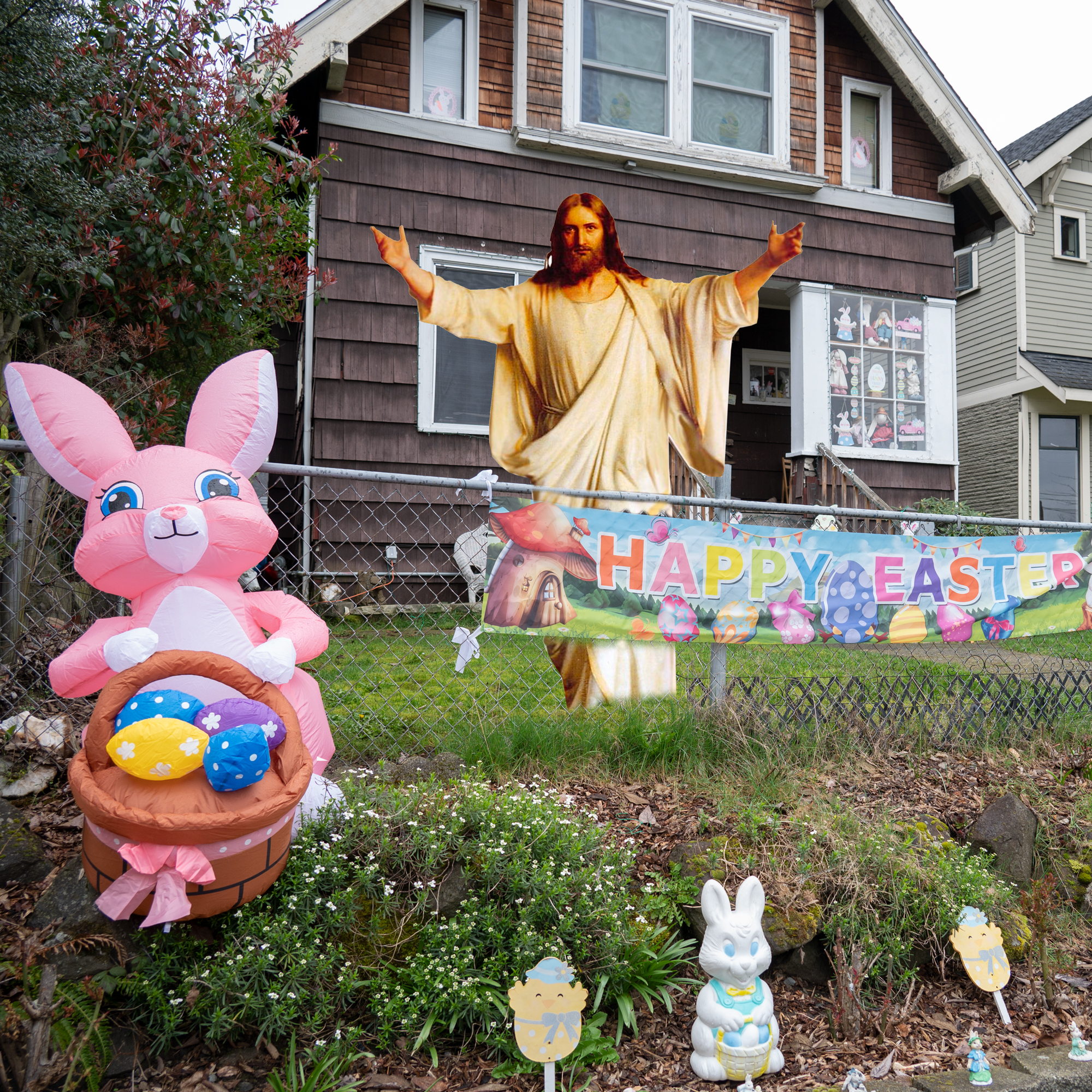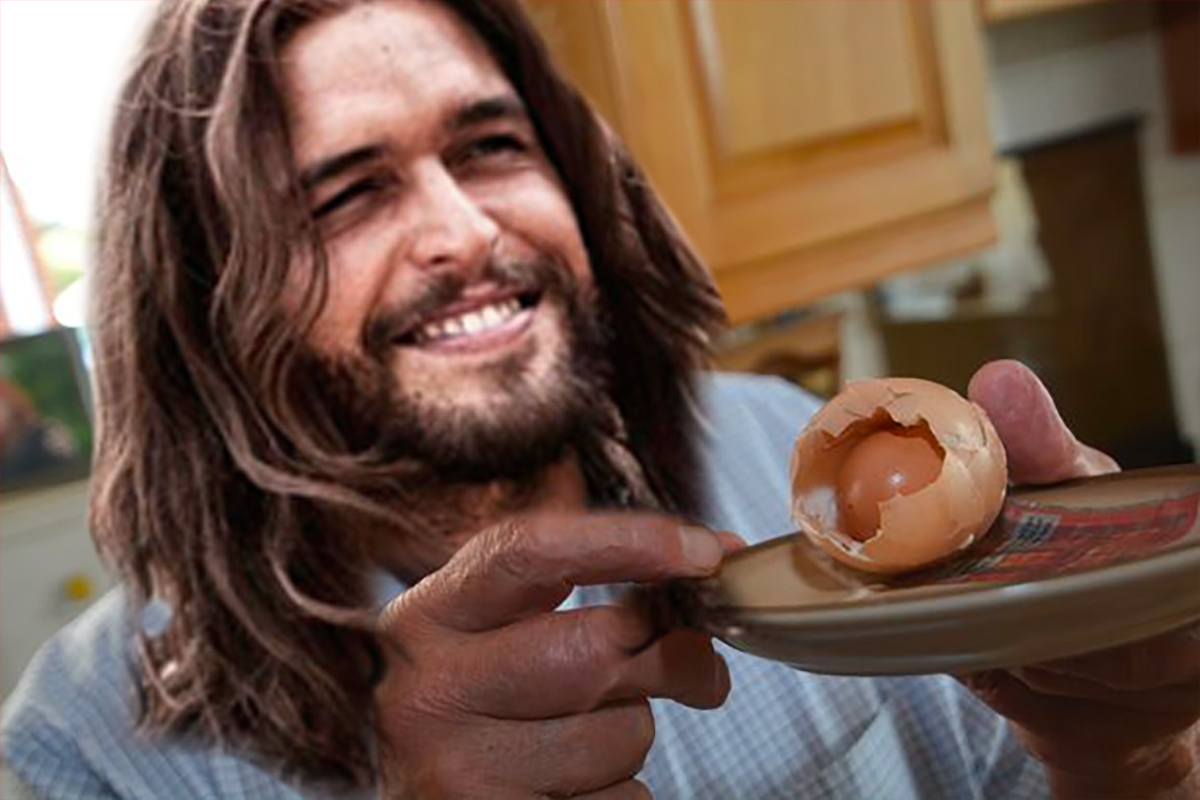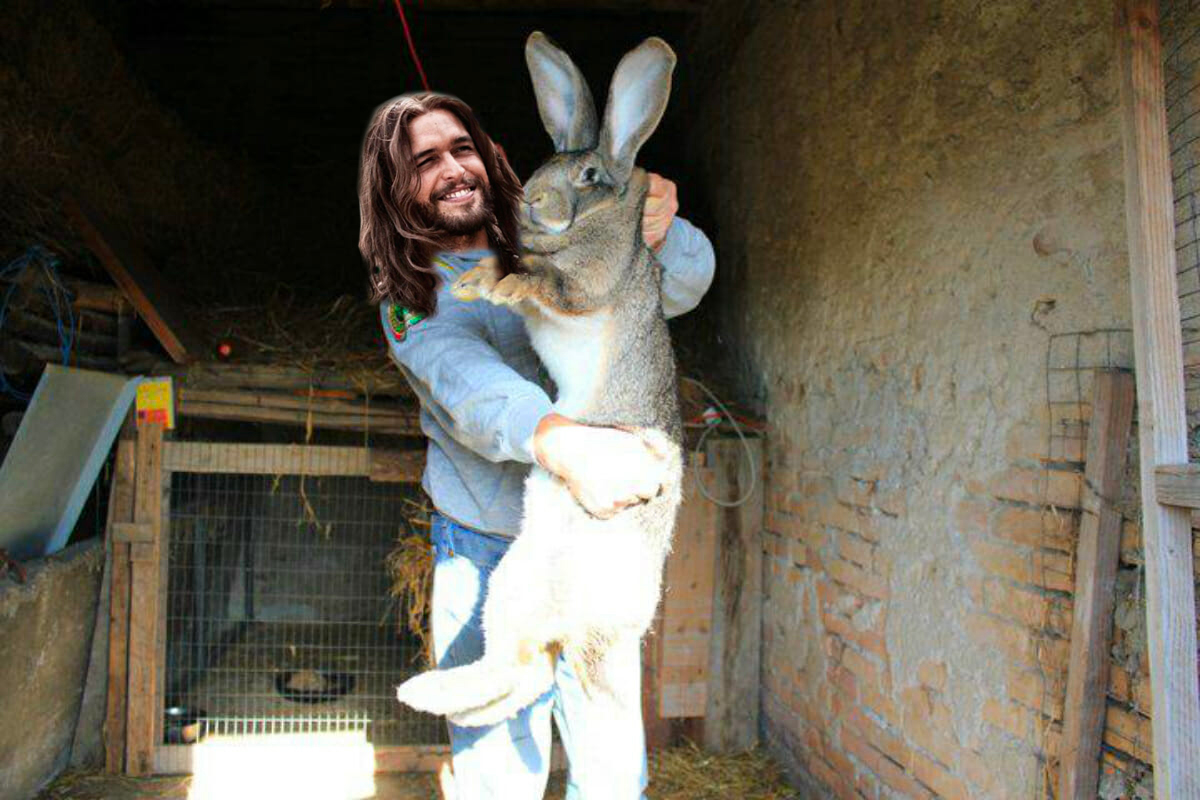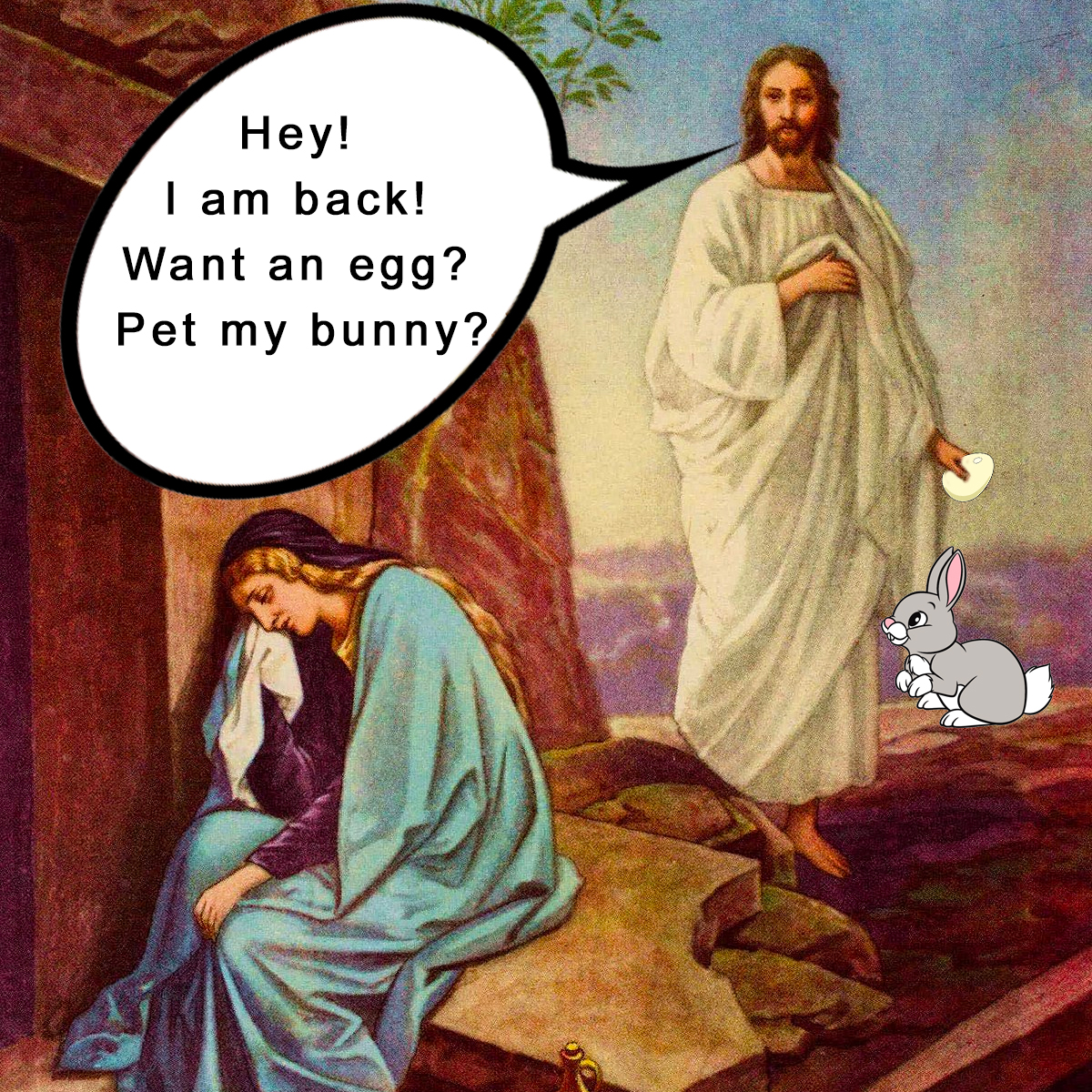We noticed bunnies, eggs, rabbits, and baskets appearing in our neighborhood, which can only mean one thing: Jesus will be back soon!

Everyone knows Jesus was a bunny farmer and loved boiled eggs, so naturally, the decor in people’s front yards for this religious holiday revolves around that.

Some historians say otherwise and we recently interviewed Professor McDougall Historian of Religion from the University of Christian California.

“The resurrection of Jesus, as described in the New Testament of the Bible, is essentially the foundation upon which the Christian religions are built. Hence, Easter is a very significant date on the Christian calendar,” McDougall said.
McDougall also said that Jesus was not a bunny farmer and there is no evidence to point to him loving boiled eggs.
“Despite Easter’s significance as a Christian holy day, many of the traditions and symbols that play a key role in Easter observances actually have roots in pagan celebrations—particularly the pagan goddess Eostre—and in the Jewish holiday of Passover,” McDougall said.
The exact origins of the Easter Bunny tradition are unknown, although some historians believe it arrived in America with German immigrants in the 1700s. Rabbits are, in many cultures, known as enthusiastic procreators, so the arrival of baby bunnies in springtime meadows became associated with birth and renewal.
It’s believed that eggs represented fertility and birth in certain pagan traditions that pre-date Christianity. Egg decorating may have become part of the Easter celebration in a nod to the religious significance of Easter, i.e., Jesus’ resurrection or re-birth.
In varying ways, all four of the gospels in the New Testament (Matthew, Mark, Luke, and John) state that those who believe in Jesus’ death and resurrection are given “the gift of eternal life,” meaning that those of faith will be welcomed into the “Kingdom of Heaven” upon their earthly death. This leads us to believe if you hide eggs for children in your yard this year you will live forever.


